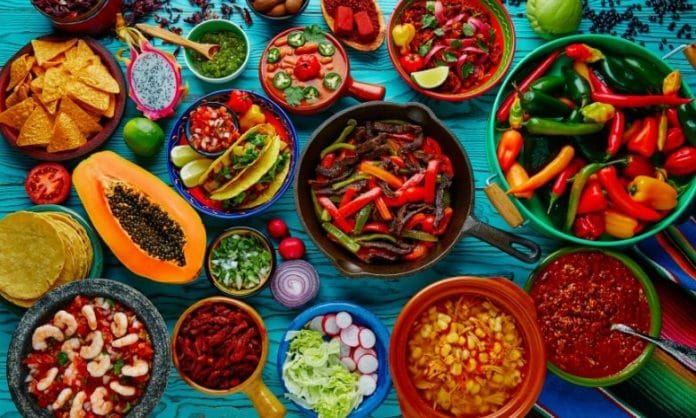With the lifting on many COVID-19 restrictions in Europe, people are finally able to share a meal with friends and family, indulging one of life’s most pleasurable activities: eating food.
During the height of lockdowns, with some of our favourite restaurants and food services unavailable, many of us turned to social media to learn how to make our favourite dishes from home. In support of the United Nations World Tourism Organisation’s #TravelTomorrow campaign, chefs from around the world, including UNWTO Ambassadors for Gastronomy Tourism, shared their local recipes, giving us a taste of what to expect when we travel again, and highlighting the unique potential of gastronomy tourism.
As governments seek to revitalise their hard-hit tourism industry, gastronomy will have a key role to play enriching the tourism offer and stimulating economic development in destinations all around the world. The UNWTO’s annual World Forum on Gastronomy Tourism brings together experts from across tourism and gastronomy with the aim of promoting the exchange of experiences between experts in tourism and gastronomy, to identify good practices and to promote gastronomy tourism as a factor of development of countries. As a result of the global pandemic, the 6th edition of the forum is postponed until 2021. The city of Bruges in Flanders, one of Europe’s gastronomic centres, will remain the host destination.
The UNWTO is also looking for disruptive ideas and innovators who are leading the transformation of the sector. Through its Global Gastronomy Tourism Startup Competition, organised yearly, in partnership with the Basque Culinary Center, the competition seeks to identify and celebrate contribution in the field of gastronomy to the advancement of the Sustainable Development Goals (SDGs). The 2020 winners will be announced at the end of year.
Gastronomy tourism has emerged as an important protector of cultural heritage, helping create economic opportunities, including the creation of jobs, most notably in rural destinations.
However, as it stands, we are using our lands, soils, oceans and forests in largely unsustainable ways. We need to be more careful about how we use our natural resources as producers and we need to be pickier about how we choose our food as consumers.
In the post-COVID-19 world, it is ever more essential that our way of consuming food become more sustainable. Every year, on 18 June, we celebrate Sustainable Gastronomy Day. But just it is and why do we have day for it?
Sustainable gastronomy is cooking that takes into account where ingredients are from, how the food is grown and how it gets to our plates.
We mark the day because eating local foods that have been produced sustainably makes a difference to people’s livelihoods, to the environment and to economies. By 2050, the world will have over 9 billion mouths to feed. Yet, 1/3 of all food produced is lost or wasted.
Caring about our local foods and markets means that we can help to preserve our culinary roots: the traditional crops, recipes and cultures from which these cuisines originate.
By being open to locally grown foods and eating what is in season, we can help shift the buying patterns of local businesses, like restaurants and hotels, and support the area’s fishers and farmers.
There is more to gastronomy than just food. It reflects the culture, heritage, traditions and sense of community of different peoples. It is a way of promoting understanding among different cultures, and of bringing people and traditions closer together.
Additional links:
- COVID-19 Hub
- WFP invites you to a Virtual Chef’s Table on the theme of People and Food on the Move on Tuesday June 23
- UN World Tourism Organization
- 6th edition World Forum on Gastronomy Tourism
- Gastronomy Tourism Start-up Competition

